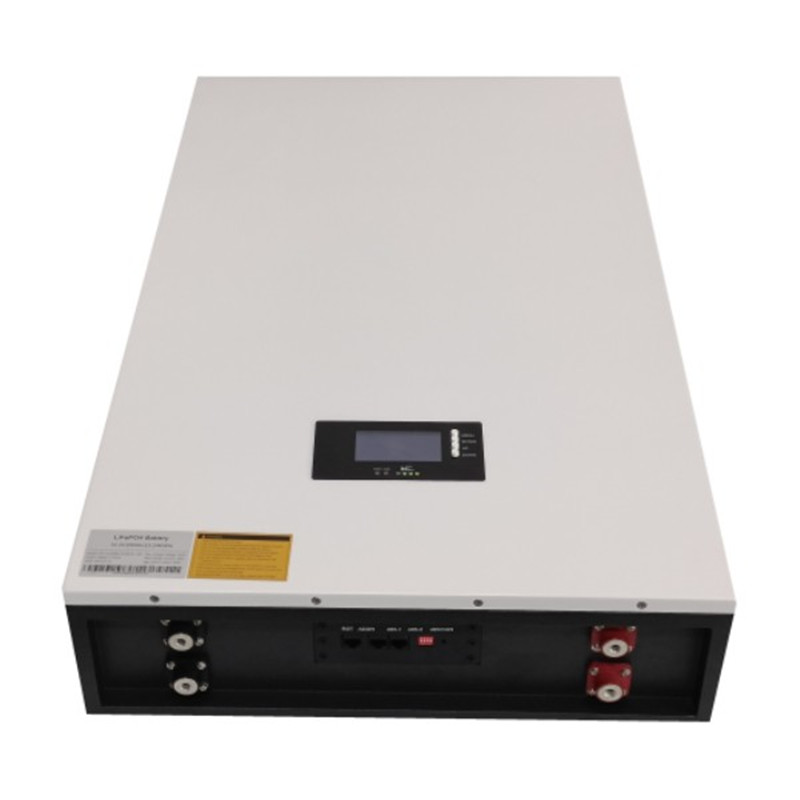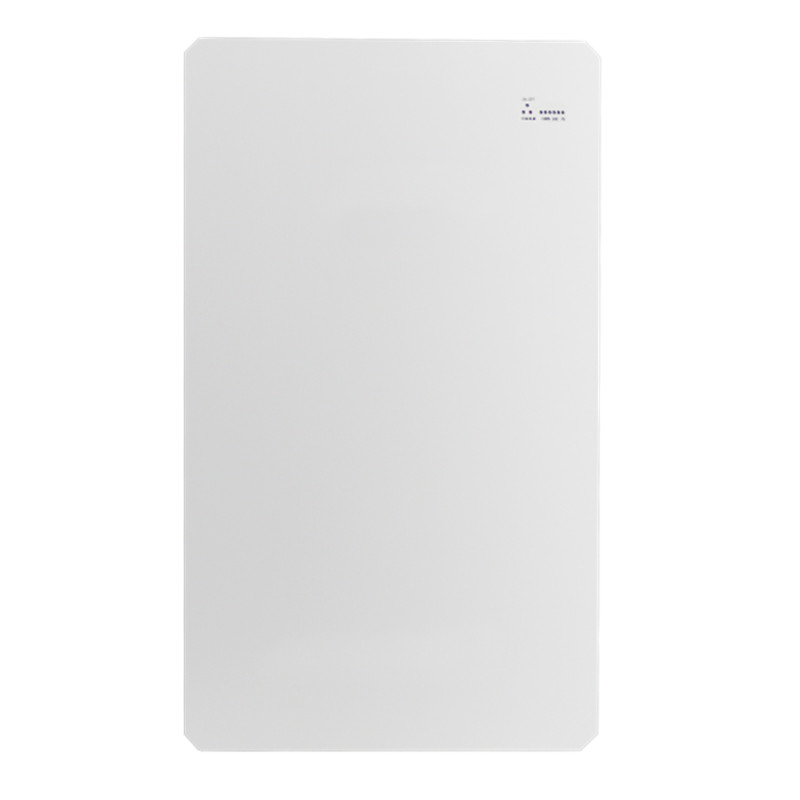Sonnen batteries were created with virtual power plant, or VPP, technology as the main focus. But you'll get backup power too.
When shopping for a solar battery, you're most likely looking for protection against power outages and high energy costs. A Sonnen battery can help you tick off those boxes. But it's built to do even more. Energy Storage Cell

Sonnen batteries are more niche than other solar batteries. Their main function isn't to provide backup. Instead, they're meant for participation in a virtual power plant network. Or in this case, the Sonnen VPP, which we'll cover in depth below.
"This is smart solar. This is actually the solution for energy transition," Sonnen CEO Blake Richetta told CNET. "In other words, you're reducing your carbon footprint far more and you're providing a real solution for getting rid of fossil fuel-based power plants. What that also means to you is a lower electric bill."
Can solar panels save you money?
Interested in understanding the impact solar can have on your home? Enter some basic information below, and we’ll instantly provide a free estimate of your energy savings.
Solar batteries are part of a complex home energy system, with energy needs and solar panels differing from house to house. This makes hands-on testing of these products difficult. Instead, this review is based on specs and information provided by Sonnen online and an interview with Richetta to make sure we have the most up-to-date information.
Here's what you can expect with a Sonnen battery.
Sonnen offers three different residential batteries in the US: the SonnenEvo, SonnenCore Plus and EcoLinx. Each battery can provide backup power, which is nice. But Sonnen batteries are designed for a connection with the company's virtual power plant program. Sonnen also offers a commercial and industrial EcoLinx battery called the EcoLinx 100. This review covers only Sonnen's residential battery models.
Sonnen batteries aren't all about backup power, but it's still important to take a look at how these batteries perform in that area.
Sonnen is a German company, specializing in virtual power plant, or VPP, and grid services technology in Europe. Now Sonnen has brought its VPP technology to the US.
And though Sonnen batteries can still provide backup power, that isn't their primary function.
"Sonnen has never been a battery that has had anything to do with anything but virtual power plants," said Richetta. "Harnessing solar and harmonizing it into the greater grid operation and transforming intermittent renewable generation into something that's usable in the grid has always been Sonnen's work."
A VPP is essentially a network of small-scale energy-generating or storage devices that are connected together to serve the power grid. VPPs create a power supply from other decentralized resources to be fed into the power grid. This helps provide more demand flexibility, which helps with changing electricity consumption patterns throughout the day. The power grid can handle only so much demand at a given time. The integration of renewable energy sources, like solar, into the grid can help offset periods of the day when there's a high energy demand. It can also provide more-affordable power.
The Sonnen VPP virtually connects a local network of Sonnen batteries together to form a virtual renewable power plant capable of servicing the power grid. Participating in the Sonnen VPP can help lower your electricity bill and reduce your carbon footprint. You'll also receive cash payments for participating in grid services. Plus, you'll still receive backup power.
You'll be eligible for participation in the Sonnen VPP with the purchase of any Sonnen battery model, but the Sonnen EcoLinx has access to a wider variety of grid services.
The majority of your Sonnen battery's components are built into the unit enclosure itself, so purchasing separate components isn't necessary with this system. This compact design also means you won't have a bunch of boxes hanging on the wall. You won't have to buy all these boxes to make things happen, Richetta said. Everything you need is under one system.
Here's what comes "in the box":
Sonnen's residential batteries offer pretty good capacity options, but the Core Plus and Evo models are a bit lackluster when it comes to modularity. This makes future capacity upgrades more difficult.
The Core Plus is available in 10kWh and 20kWh units. You can install up to three 10kWh units for a total of 30kWh, or install up to three 20kWh units for a maximum capacity of 60kWh. You can't mix and match the 10kWh and 20kWh units. The Evo models are solid as 10kWh units. You can install up to three Evo units for a maximum capacity of 30kWh.
However, the EcoLinx is very modular, offering homeowners capacity between 12kWh and 20kWh, installed in increments of 2kWh. Or you can purchase a standalone 30kWh unit.
We'd also like to reiterate that Sonnen batteries were designed to primarily function with VPP technology, unlike other batteries, which are typically designed to function solely as a backup power source or solar storage. But if you choose to use a Sonnen battery as a backup power source, Sonnen offers fairly large capacity sizes.
Performance specs on Sonnen batteries are a mixed bag. Let's start with the positives. All three of Sonnen's batteries have an impressive 100% depth of discharge rating, which basically means you can drain as much of your battery at one time as you need to, without damaging it, according to the manufacturer. However, it's still recommended that you don't do so.
Now the negatives: efficiency and power output. Sonnen batteries aren't known for being the most efficient, and the specs don't lie. The Core Plus and Evo batteries have round-trip efficiency ratings of less than 86%, which is lower than average for lithium-ion batteries (greater than 90%). And the EcoLinx falls even lower, at 81.6%. The continuous power output rating for an individual Core Plus or Evo battery (4.8kW) is also lower than average when compared with other solar batteries of similar size (though that rating goes up if you have multiple batteries). However, the EcoLinx's power output is pretty solid.
The warranty category is one of Sonnen's strongest areas. Each Sonnen battery comes with a great warranty, but the EcoLinx comes with one of the best warranties we've seen among solar batteries. The EcoLinx has the highest year and cycle coverage of any battery we've reviewed. The EcoLinx also comes with a 25-year VPP Project Support Program for specific projects.
Cycle coverage for the Core Plus and Evo models is great too. An average solar battery warranty covers between 4,000 to 6,000 cycles. Sonnen also offers an end-of-warranty capacity guarantee on all its batteries, but we found it to be at about the industry standard.
Years covered: The specific number of years your battery is covered under warranty. After the specified period of time passes, your warranty coverage ends.
Cycles covered: The specific number of complete cycles your battery is expected to perform under warranty. If your battery surpasses the specified cycle count, your warranty coverage ends. A battery "cycle" is the process of fully discharging (draining) and recharging your battery. In most battery warranties, your warranty expires once you hit your specified cycle count, no matter how many years of coverage you have left. Make sure to check the fine print for cycle and throughput clauses.
End-of-warranty capacity guarantee: The manufacturer's guarantee that your battery will retain a specific percentage of its original capacity by the time your warranty coverage ends.
Based on what we've seen online, customer service and support with Sonnen is pretty standard. And we mean that in a good way. Most battery manufacturers seem to struggle with providing helpful customer support, at least judging from the batteries we've reviewed. Sonnen has an "average" overall rating on Trustpilot, but many of the reviews seem to be more positive than negative. However, with recent reviews it's the opposite.
When you purchase a Sonnen battery, you'll also gain access to the Sonnen app, allowing you access to a variety of features. We found the Sonnen app to be a mix of standard solar battery app features and useful extras, like real-time historical data tracking. The main features of the Sonnen app include monitoring your energy production and consumption, helping you avoid expensive time of use rates, setting your battery's backup buffer and tracking your energy data trends to meet your personal energy goals.
The Sonnon app has high overall review scores on both the Google and Apple app stores.
The SonnenCore Plus starts at $10,300 and the SonnenEvo starts at $13,800. In listings from third-party retailers online, we usually see prices for the EcoLinx starting at around $30,000. But Sonnen said pricing for the EcoLinx is available on request.
A general rule of thumb with solar batteries is that you can usually expect to pay between $1,000 to $2,000 per kilowatt hour of storage, and between $2,000 to $3,000 for the installation of the battery.
Sonnen batteries are a bit pricer than other options out there. But because Sonnen batteries are designed primarily for VPP functionality, it's difficult to compare their value against other battery systems that are designed to mainly just serve as a backup power source and solar storage device.
To get the most accurate price estimate, you'll need to speak with a Sonnen-certified installer in your area or a Sonnen representative. We also recommended exploring multiple battery options from various installers near you.
It might be, or it might not. It really all comes down to your home's energy needs, your budget and what you want to use your battery for. If you're looking for a traditional backup battery or solar storage device, then a Sonnen battery probably isn't your best choice.
But if your main goal is to lower your electricity bill, and potentially earn additional income through a virtual power plant program, then Sonnen batteries are a great choice. Sonnen batteries also come with some of the best battery warranties we've seen. So if warranty coverage is a priority for you, Sonnen is a solid option in that area. You should also keep in mind that these batteries work best with homes that have solar panels, and they aren't the most efficient or powerful batteries on the market.
And your options aren't limited to just Sonnen. There are plenty of solar battery options to explore that also might make sense for your home. Most installers are certified to install more than one brand of battery. We recommend exploring battery offerings from multiple installers in your area before making a final decision. To get the best price possible, gather as many quotes as you can from national and local installers in your service area.
Each battery is different and isn't going to be the right fit for every home. Without an on-site inspection, it's difficult to determine which solar battery is the "best" battery. Because of the complexity of solar panel systems, we aren't able to do any kind of hands-on testing of any of the solar batteries we review. However, there are objective ways to evaluate and compare these batteries. Here's how we evaluate solar batteries.
First, we created categories to evaluate the battery's efficiency, performance, capacity and value. We also gave each category its own weight. Each category's weight reflects the importance we felt was relevant to the average consumer. Here are the categories and their weights:
We looked at more than 15 of the most common batteries on the market and collected the data for each category to compare the numbers. Each battery was given a tier-style rating (from 1 to 5) for each category to see which metrics of each battery were above average (among those on our list), average or below average.
Sonnen partners with solar contractors and utility companies across the US. To install a Sonnen battery, the first step is to find a Sonnen-certified installer in your area. Sonnen doesn't do any in-house installations.
Sonnen batteries are made for grid-tied power solutions, and to support the power grid through VPP and grid service technology. If you're planning to do any kind of partial or complete off-grid living, then a Sonnen battery isn't for you.
Yes, all Sonnen batteries are eligible for the federal solar tax credit. A solar battery qualifies for the federal solar tax credit as long as it can hold at least three kilowatt-hours (3 kWh) of energy and is installed in 2023 or later.
Best Solar Products and Companies
Living Off the Grid Series
Updated Aug. 9, 2023 6:00 a.m. PT
We thoroughly evaluate each company and product we review and ensure our stories meet our high editorial standards. Read how we test products and services.

Energy Ess Instantly estimate your solar cost and savings. Pick a provider later.
